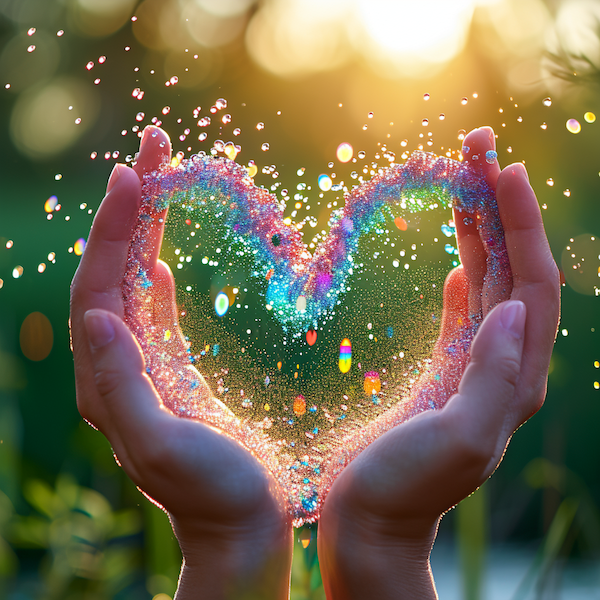“I just kept saying, ‘I’m sorry’ and ‘I love you’ over and over again. Turns out that loving yourself is the greatest way to improve yourself, and as you improve yourself, you improve your world.” — Dr. Ihaleakala Hew Len
I’ve always held a deep belief in the power of a simple ‘thank you.’ I’ve witnessed firsthand how it can rescue someone from the brink, illuminate the darkest moments, and even bring about profound change. Each time I express gratitude, it seems to ignite a desire in others to reciprocate, to extend kindness further, and to evolve into better versions of themselves. But there was a time when my heartfelt apology fell on deaf ears. In that moment, I realized that the person I had hurt was not ready to forgive me, perhaps due to the depth of the pain I had caused. It was a sobering reminder that words, no matter how sincere, cannot always immediately mend what has been broken. I will write more about this in the next blog post.
In today’s fast-paced digital world, where emoticons, stickers, and online chats have become the norm, I’ve noticed a gradual erosion in the quality of our personal connections. It makes me ponder the rarity of genuine, face-to-face expressions of remorse or gratitude. How often do we truly look someone in the eyes to sincerely apologize, or to offer thanks from the depths of our hearts?
I believe that a little bit of gratitude can travel a long way. While a charming Minions sticker might bring a smile, it can’t replace the warmth conveyed through spoken words of thanks. From childhood, my parents instilled in me the importance of saying ‘thank you’ and ‘I’m sorry.’ Yet, as I grew older, I found these words increasingly difficult to utter with genuine emotion. They often slipped out mechanically, devoid of the sincerity they once carried.

I learned about this Ho’oponopono prayer which I will write more in a future post. Four simple phrases that heal the soul.
I’m sorry,
please forgive me,
Thank you,
I love you.
This is short and sweet.
Rebecca Cole, author and TV co-host, once remarked on the rarity of people acknowledging the kindness of others in our modern age. Her words resonated with me, reminding me that even for the simplest acts, expressing gratitude can hold immense power. Not only does it make the recipient feel valued, but it also fills me with a sense of contentment.
Then there is Francesca Gino’s story about receiving a thankful gesture from her husband’s CEO for her understanding and patience struck a chord with me. It made me more mindful of my own expressions of gratitude, prompting me to say ‘thank you’ more frequently and meaningfully.

Apologizing, on the other hand, is a different yet a vital aspect of human interaction. Every ‘I’m sorry’ I utter is an acknowledgment of respect towards the other person, reinforcing trust and mutual respect in my relationships. I’ve learned that a genuine apology can alleviate guilt and foster healing. Guy Winch, author of ‘Emotional First Aid,’ supports this notion, emphasizing the healing power of an effective apology for both the giver and the receiver.
However, I’ve come to realize that apologies must be more than just words. They should be reflections of sincere remorse and a commitment to change. I often told my husband that actions speak louder than mere apologies. It’s one thing to say ‘I’m sorry’; it’s another to understand the hurt caused and to work diligently to ensure it doesn’t happen again. He is a work in progress just as I am.
Cultivating an attitude of gratitude and mastering the art of sincere apology can be transformative. These practices not only mend wounds but also enrich our lives with appreciation and peace. Let us not delay in mending relationships, in expressing heartfelt thanks, and in offering genuine apologies. Such small acts can indeed make a world of difference.
